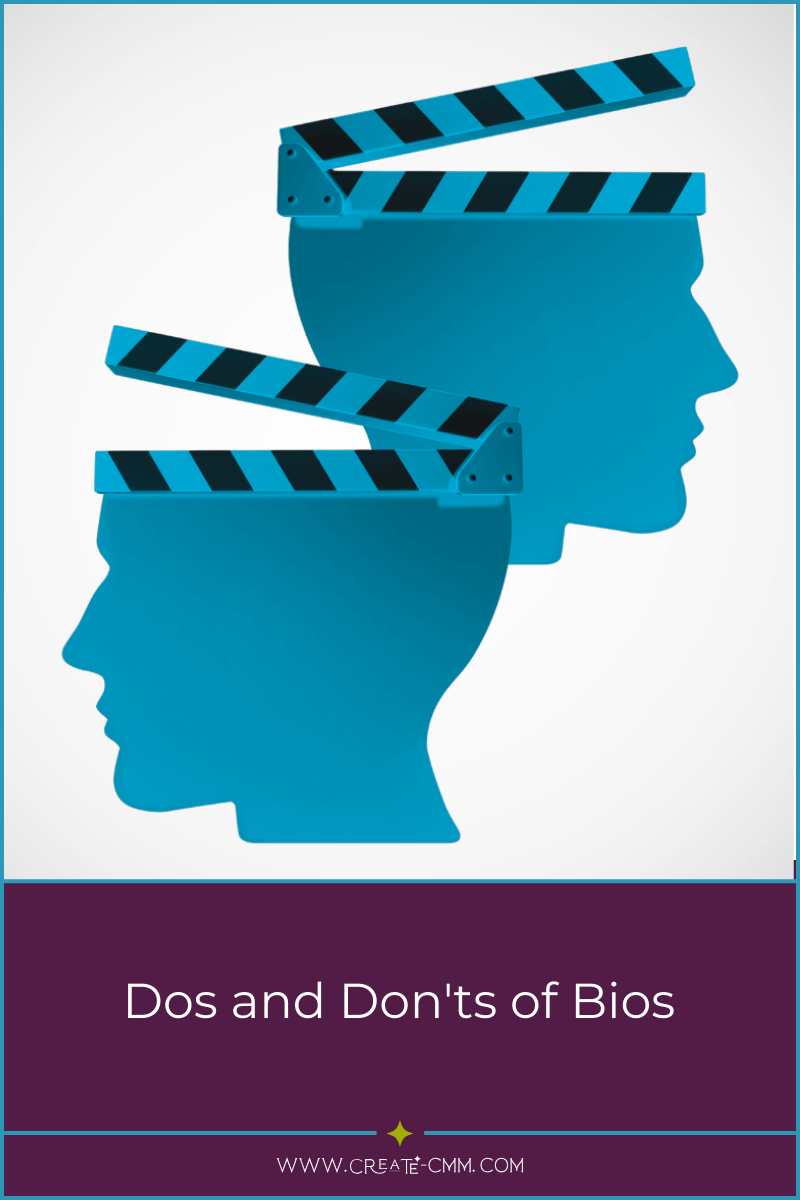Slowly But Surely, Grammar Rules Evolve
As every writer knows, language continually evolves to reflect our changing culture. In September, Merriam-Webster added 690 new words to its dictionary. Is it me or does that seem like a lot of new words? They come from slang, emerging industries, and gaming, among other areas, and I wonder how many will be relevant in five years.
Use Collaborative Content Development to Enhance Credibility and Build Visibility
In a collaborative content process, lawyers as subject matter experts can conceptualize the topics and frame the discussion to address the needs and questions of their audiences, provide guidance and feedback throughout the process, and review, finalize and approve the content before release.
Curing the Epidemic of Generic
Do you know which AmLaw 200 law firm describes itself as: “Sophisticated counsel that partners with clients to manage risk and take advantage of an opportunity in an evolving market”?
Perhaps you recognize the firm that declares itself to be a global firm “dedicated to helping clients achieve their strategic business goals.”
Maybe you know the firm that is "a trusted advisor to corporations and individuals navigating complex legal landscapes”?
Actually, that last one was generated by ChatGPT from a prompt asking it to write the description of a law firm modeled after the current AmLaw 100 descriptions.
Marketing Lessons From The Eclipse
[I originally wrote this article after the complete solar eclipse that happened in 2017. At the time, I don’t think I was aware that we would have the chance to see another eclipse this year. The path of totality is much closer this time around, so I won’t be having nearly as grand an adventure for this one. That said, a total eclipse is an exciting and infrequent event—the next one visible in the U.S. is not for almost nine years—and the lessons from #Eclipse2017 are just as relevant today.]
Why Content Is Still King, But Style Is The Queen
A few weeks ago, I read about a case pending in the U.S. Court of Appeals for the 11th Circuit about a dispute over $4.85 million in insurance proceeds. The issue at the heart of the case is whether the language of professional liability policy covers alleged gross negligence related to auditing work done by a consultancy.
The policy’s definition of covered management consulting services reads: “Services directed toward expertise in banking finance, accounting, risk and systems analysis, design and implementation, asset recovery and strategy planning for financial institutions.”
The insurer denied coverage, arguing that the phrase “for financial institutions” modifies the entire set of services and therefore the definition does not apply to the auditing work done for the client of the consultancy: a food distribution company.
What to do when you don't get the work
We’ve all been there – in one way or another – from the “hot” prospect that never returns your phone call(s) to the loyal (or so you thought) client that hires another lawyer or firm to handle its newest matter, from the time-consuming RPF response that doesn’t get you past the first round, to losing out to the other finalist at the very end of the selection process.
It sucks. A lot.
And the temptation is to shut your office door, patch up your ego, and try to forget about the whole nasty experience as quickly as possible.
Understandable? Yes.
The best choice? Nope. Not if you ultimately want to improve your marketing and grow your practice or firm.
So, next time you get slapped upside the head by the loss of an opportunity, try the tips in this article instead.
Dos and Don’ts of Bios
As a legal marketing professional who works with lawyers and firms on content marketing strategy, it pains me greatly to see clients work so hard on their business development and marketing efforts while at the same time ignoring one of the most essential and powerful tools in their marketing toolkit: lawyer bios.
Bios rank as the second-most important factor in legal services hiring, just behind — and often in combination with — referrals from trusted sources. For law firms, bios are also the largest driver of traffic to their websites. Prospective and existing clients are both heavy viewers of lawyer bios — the former to vet potential hires and the latter when reviewing invoices, making referrals, or hiring for new or different work, among other reasons.
What’s your marketer style?
When I was a teenager, I loved a good Cosmo quiz. They were mildly NSFW at the time, either because of the content or the fact that I didn’t want my boss (or my mom, from whom I stole the magazines) to catch me reading Cosmo. I’ve officially aged out of the demographic for the magazine (“36 signs You’re in Millennial Love” just doesn’t apply), but I still love a good quiz.
Cosmo quizzes may—or may not—have been based on real sociological research and scientific methodology.
Today’s quiz “what’s your marketing personality?” is most definitely not.
My sample size of “clients I have worked with over the last 15 years” is not likely to be statistically significant, nor can I claim any “research methods” that actually qualify as either research or methods.
That said, my goal is to help lawyers and firms get the most out of their marketing efforts, and I think the best way to accomplish that goal is often to identify pain points and work with them, rather than fight against them.
Your Presentation Is Over, Now What?
Speaking has always been an important element of legal marketing for lawyers and firms. Whether in person or virtually, at conferences, firm-organized events or client CLEs, speaking before the right audiences provides an opportunity to showcase your expertise and enhance your visibility with people who make legal hiring decisions—or influence those who do.
Putting together substantive presentations can be time-consuming. (For tips on creating effective presentations, read my blog “Preventing Homicide by PowerPoint: 5 Tips to Better Presentations.” ) Fortunately, by optimizing your presentation content, you can generate a return on your investment of that time and effort that is exponentially greater than the business development opportunities you may see from a single speaking engagement. Your PowerPoint slides, speaker’s notes, and the presentation itself aren’t the final products, to be shelved once the applause dies down and the audience goes home (or logs off). They can (and should) be the jumping-off point for a wide variety of materials that can be used in multiple ways and across numerous channels. They can be reinvigorated and turned into content that can serve as additional touchpoints for the original audience to keep you and your presentation in their minds, both immediately after the event and for months after. They can also be repurposed to extend your reach to additional audiences.
Preventing Homicide By PowerPoint: 5 Tips to Better Presentation
Bad presentations are very painful, not only for audiences but also for speakers, who often come off the stage (or Zoom) feeling like they didn’t quite connect with the audience.
Technology consultancy Globant has a video that I watch every time it pops up in my feed, even though I’ve seen it at least a dozen times, that’s how much it resonates with me.
The 45-second video features “Mike” – a nerdy looking guy with glasses, typing furiously at his computer in the middle of an open-plan office full of desks.
A crowd has gathered.
A colleague standing beside him is counting – 995, 996, 997 …
“What’s happening?” whispers a woman to one of the onlookers.
“Mike’s about to reach 1,000 slides in the new client presentation!”
Would You Rather? How to Use This Party Game to Enhance Your Marketing
The party game “Would You Rather?” has spawned internet memes, Buzzfeed quizzes, drinking games, brand advertisements and lists upon lists of themed questions (life questions, moral questions, food questions, dirty questions and questions for kids, to name a few).
Earned, Owned and Paid Media: Using Them Effectively in Today’s Digital Marketplace
Lawyers and law firms have been using different kinds of content to reach and engage with clients and prospects since long before “content marketing” was a concept and anyone aspired to be a “thought leader.” The analog version of content marketing included sending out newsletters and alerts, offering resources such as white papers, authoring articles in outside publications and speaking at conferences and events. Add in some public relations efforts and perhaps some (tasteful, please!) advertising, and you’ve achieved the trifecta of marketing: owned media, earned media and paid media.
Team Member spotlight: Samantha Drake
I’ve been a marketing content writer for more than 10 years and made my living as a journalist for a lot longer than that. A background in journalism isn’t necessary to be a good content writer, but it can help quite a bit.
When I started writing marketing content for law firms, I felt my usual nervousness about trying something new. I’d written about numerous types of litigation over the years, including toxic torts, pollution liability, personal injury, and insurance, but what did I know about writing marketing content? I discovered I knew more than I thought. Good journalists and marketing writers are both able to quickly learn enough about a subject to write knowledgeably about it, tailor the content’s message to the target audience and craft a compelling narrative that makes readers want to keep reading.
The Envelope Please! Six Tips For Making The Most Of Legal Awards season
From about April to November, many of the more well-known ranking and awards organizations release their lists of accolades and recognitions for the year. At the same time, applications and submission packets are due for consideration for the following year. In fact, if you’re part of a larger law firm, your marketing folks are likely working right now on gathering the necessary materials for tens if not hundreds of these awards and rankings submissions. For many of these programs, it’s a huge amount of work.
I’m frequently asked whether these rankings and recognitions are important to clients.
I’d love to know the definitive answer myself. (A legal marketing professional I follow on LinkedIn posted a poll last week asking buyers of legal services to weigh in on how much stock they put in awards and recognitions, and I’m waiting for the results.)
Horse, Zebra or Unicorn?
I don’t remember the first time I heard the adage: “When you hear hoofbeats, think horses, not zebras.”
The saying is ascribed to Dr. Theodore Woodward, who is said to have coined the phrase in the 1940s as a handy way to describe how physicians should look for common causes for patients' symptoms, rather than rarer diagnoses.
In other words, expect the ordinary not the extraordinary.
From Law School to Corner Office (and Beyond): Crafting an Effective Bio
Whether you're a new lawyer, a mid-career attorney, or a seasoned legal practitioner, your bio should be a dynamic and evolving reflection of your practice—past, present and future—and an essential tool for attracting clients, partners and opportunities.
Have you been seeing some new faces in the halls of your law firm recently? It’s the time of the year when new classes of lawyers, fresh from law school or clerkships, are joining their first law firms. My team and I just recently finished up a project drafting bios for 20 newly minted lawyers. We’ve also been working on a number of bios for lateral hires—more senior associates and partners, most coming from other firms, although a few returning to private practice after serving as in-house counsel.
A Case Study on AI in Legal Marketing—With Help from ChatGPT
Understanding the potential benefits, drawbacks and risks is important to the implementation of any technology, and critical in the context of using AI in legal marketing. Having a comprehensive strategy for integrating AI-enabled technology into your existing processes can help address some of the downsides and mitigate some of the risks. AI holds exciting possibilities for legal marketing and business development, as long as it is used cautiously and with an understanding of its benefits, limitations, and risks.
Naughty or Nice? Tips for Great Legal Marketing in 2024, Regardless of Market Forecast
It’s that time of year again!
Elf on the Shelf has made his creep-tastic appearance in homes and all over social media. In-person holiday parties seem to back in fashion. Law firms are deep in budget season. (Sorry to bring the Scrooge energy here.)
Budget season is a stressful time for firms, lawyers and marketing professionals. As always, the prognosticators are prognosticating, and the forecasters are forecasting. And the predictions for 2024 are all over the place.
Four Ways To Level Up Your Personal Brand In A Tighter Market
We’re hearing a lot about the “r” word these days. Economic pundits are talking about the wobbly global economy, and some legal services marketing prognosticators have been predicting that a recession (yes, I said it) will result in increased competition and a shrinking pool of legal spending as well as hiring freezes and layoffs, particularly in Big Law. Other commentators are pointing out that certain practices — litigation, bankruptcy, privacy and data security, intellectual property, tax and employment-related practices — and certain regions of the country are less likely to be impacted than transactional practices.
From my perspective, whether you’re slightly worried, braced for negative impact, cautiously optimistic or ready to take advantage of the opportunities 2023 has to offer (my recommended course of action), one important action you can take right now is to raise your profile in the marketplace.
Putting 'Thought' Back Into Thought Leadership
Thought leadership has been a much bandied-about and ballyhooed term for law firms long before 2020, but the COVID-19 pandemic supercharged it.
Last year was a long and challenging slog, and I think most of us were hoping that we could leave a lot of the nasty behind when we ripped the old 2020 calendar off the wall and stuck a shiny new 2021 one up in its place. I’m hoping we could toss a few overused phrases from 2020 in the trash too. I’m sure you have your list, but here are a few of the buzzwords I’m tired of hearing:
Unprecedented times. New normal. Fake news. Thought leadership.




















